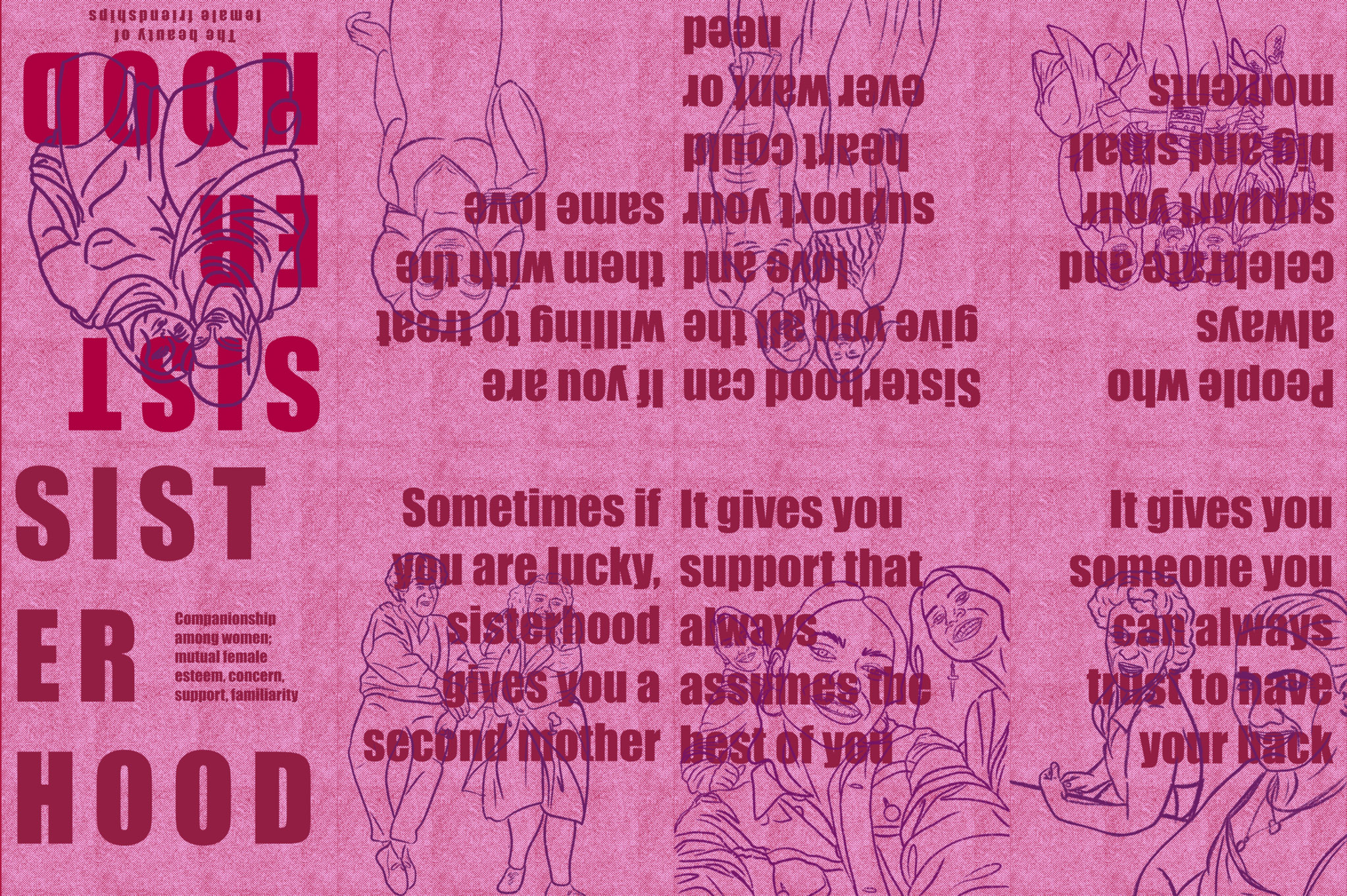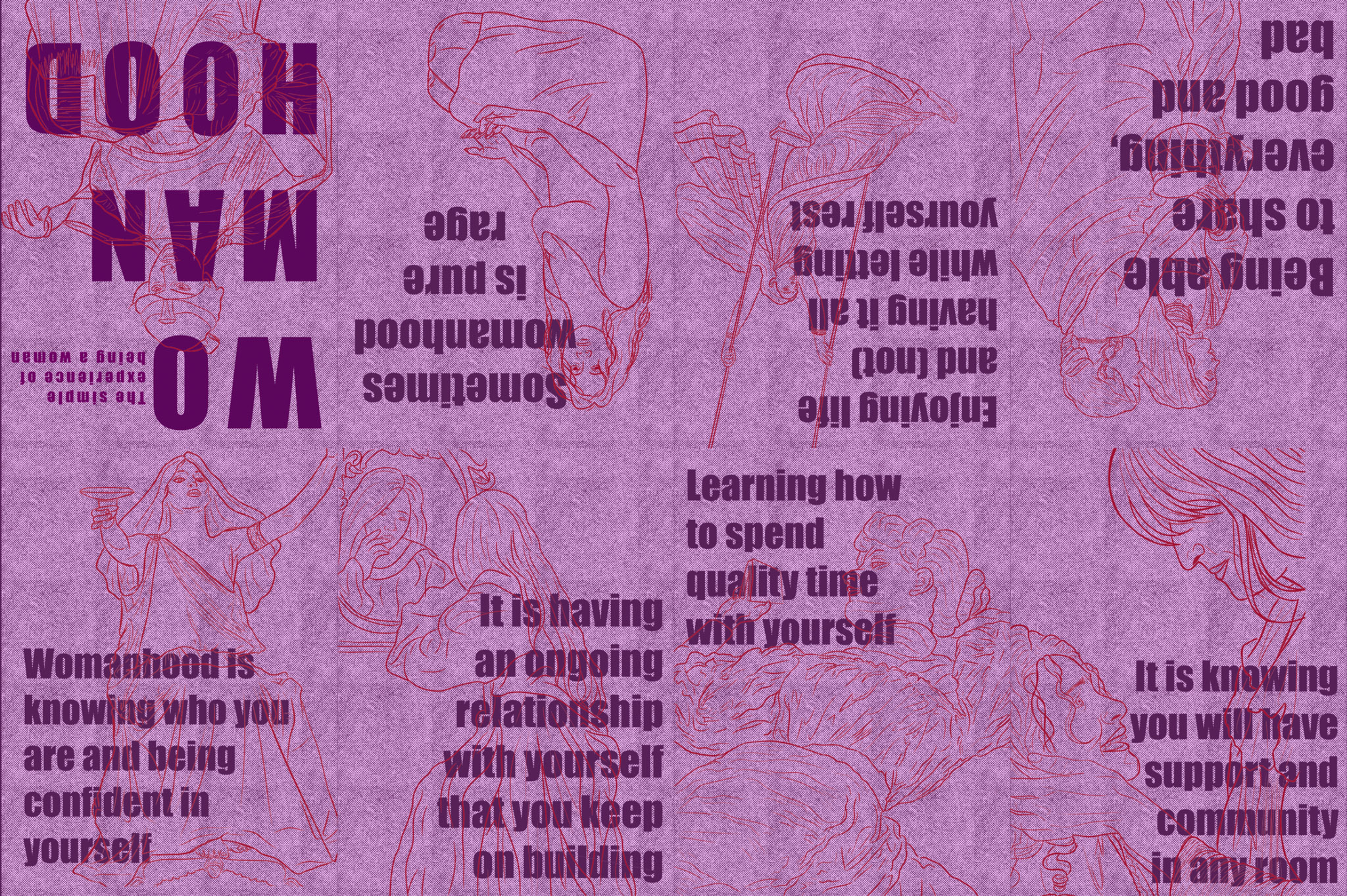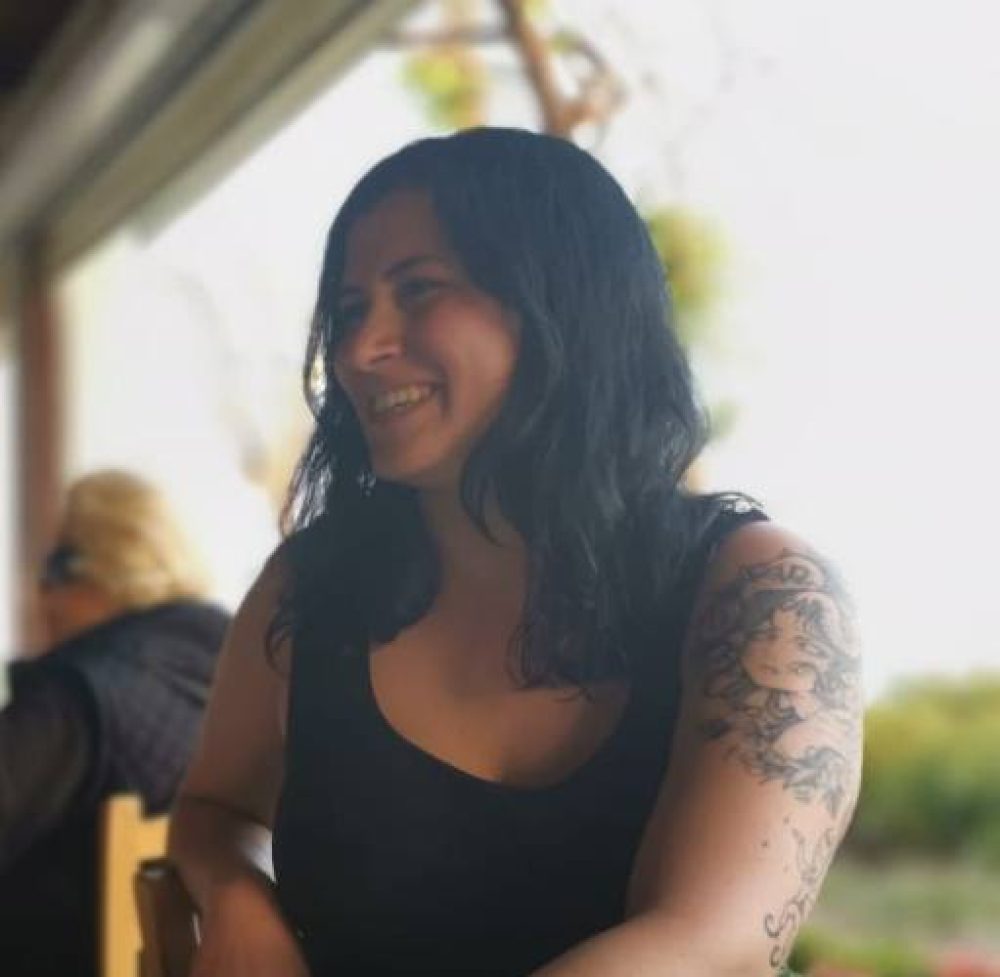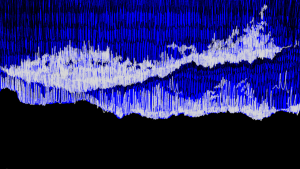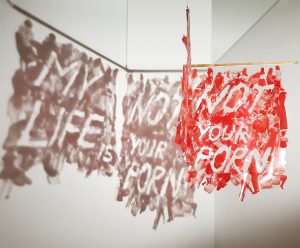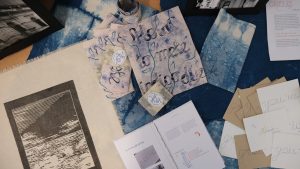Re-Imagining Reality
Yağmur Küçükakyüz
See it On Campus: Level 1
Visitor InfoYou can view my work on the purple wall at the landing by the stairs
A cathartic exploration of an imaginary reality where women of Turkiye get to live their lives in safety

Dreams of Equality and Freedom
Re-Imagining Reality focuses on Turkish women’s rights issues. It looks at the history of women’s rights and how it is to be a woman right now and tries to imagine a reality in today’s world where women can live freely. It highlights the importance of female friendships and what it means for us to show up for each other.
Through months of research, a good amount of crying, and conversations with friends, colleagues, activists, and lawyers; Re-Imagining Reality tells the story of Turkish women through Anatolian motifs and slogans while actively claiming our power. It boldly asserts our collective strength and determination.
Re-Imagining Reality is not trying to find a solution or hold people’s hands through this hard journey. It knows its audience and uses the support and responsibilities that come with it. The project focuses on creating visibility, reminding us Turkish women that we are never alone, and that we are asking for what we rightfully deserve.
Re-Imagining Reality has also been a cathartic experience for me as a woman who was once a girl living in Turkey. Being able to spend so much time on a topic I was already heavily involved in on my own time and finding a way to bring my own hopes back up has been a great process. It has become a way to celebrate womanhood and the beauty of long-lasting female friendships.
Artist Statement
What does it mean to be a woman when the whole world your country is against you?
I had that experience growing up in Turkiye. Only one law protects us. But I don’t wish to focus on that. Instead, let me paint you a Turkiye in today’s world; where sexism and patriarchal ideologies don’t exist. Let me paint a picture where women are free to enjoy life, both big and small accomplishments.
This exhibition is personal. As a woman who grew up in Turkiye, I watched the news during most family dinners, I witnessed how things got out of hand. Turkiye is currently ranked in the top 3 list countries where the highest number of femicides have taken place for the past decade or so. For a lot of us, it was Özgecan Aslan that opened our eyes.
I was 18 days shy of 15 when her life was taken. Age 19. I was younger than her. I still remember the mix of anger and sorrow that made my blood boil. Now I’m older than she will ever be.
For this project, I wanted to imagine a Turkiye today where we don’t have to live in fear as women. The realization that many of my friends around my age can’t even imagine such a reality was a gut-wrenching one. Older women got to experience a different reality in their youth, and now have in-depth answers to the cause. The changes are very simple. The changes are also crucial. My intention with my art isn’t to change the world, it never will be. I simply wish people to feel seen and for others to share our anger.
Problem Space
Growing up in the geopolitical area that I did, staying ignorant about politics wasn’t an option. It wasn’t a choice; it was survival. It wasn’t until I left that I realized not everyone felt this urgency to understand their country’s workings. It angered me to see such privilege go to waste, to see people unaware of their power. I believe that people are inherently good. I want to empower them with knowledge of their privilege so they can leverage it for good. No woman should be left behind regardless of race, ethnicity, or religion. Our problems do not matter less due to where we were born. Women face struggles worldwide, and I invite you to stand with us in our fight.
Research and Values
With the weight of this topic on my shoulders, I wanted to do as much research as I could. There was a lot to read up on, and it was heartbreaking to see how good things were going before a change for the worse happened. Turkiye was one of the first countries to give women who hold citizenship the right to vote without discrimination. The founder of Turkiye was set in his ways to make women as equal as possible when it came to legal rights. We had so much going for us back in the day, now we have one law that protects women and we have been the leading country for the number of femicides for almost half a decade. I have spent many days and nights bawling my eyes out, and have managed to find my community all over again. The first six months of my project were focused on reading, talking to people that I consider to be experts, whether it be historians, activists, teachers, or lawyers, and asking these women what their vision for a Turkiye with safety is like. I wanted to give this topic my everything and do it justice. For six months I did not actively work on any visuals but I kept taking notes on everything I could find, from women’s rights gatherings in the 30’s to protests in 2010’s. I wrote down everything that I could so that once I started working, I didn’t have to worry about not doing enough, or not doing my best.
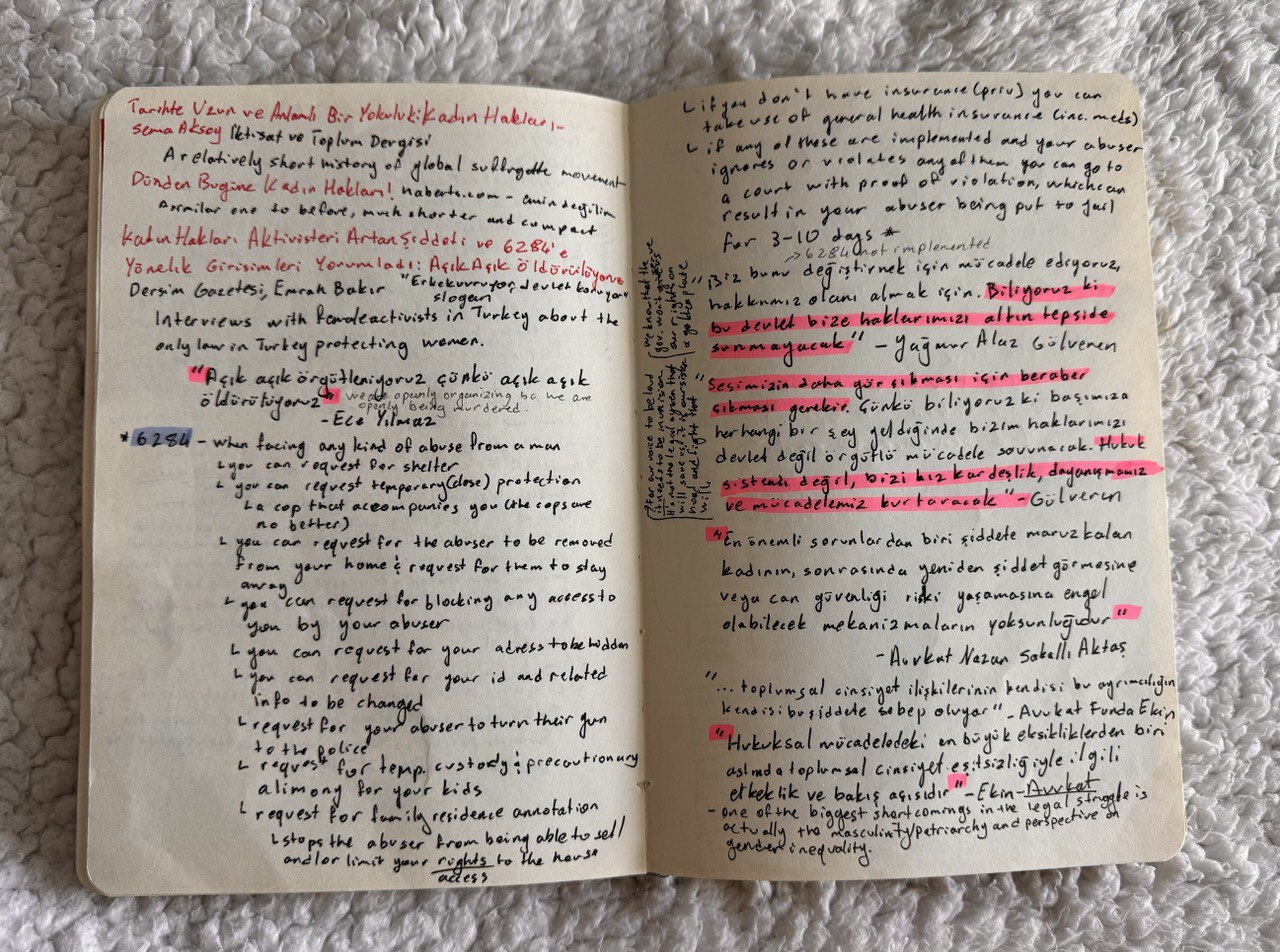
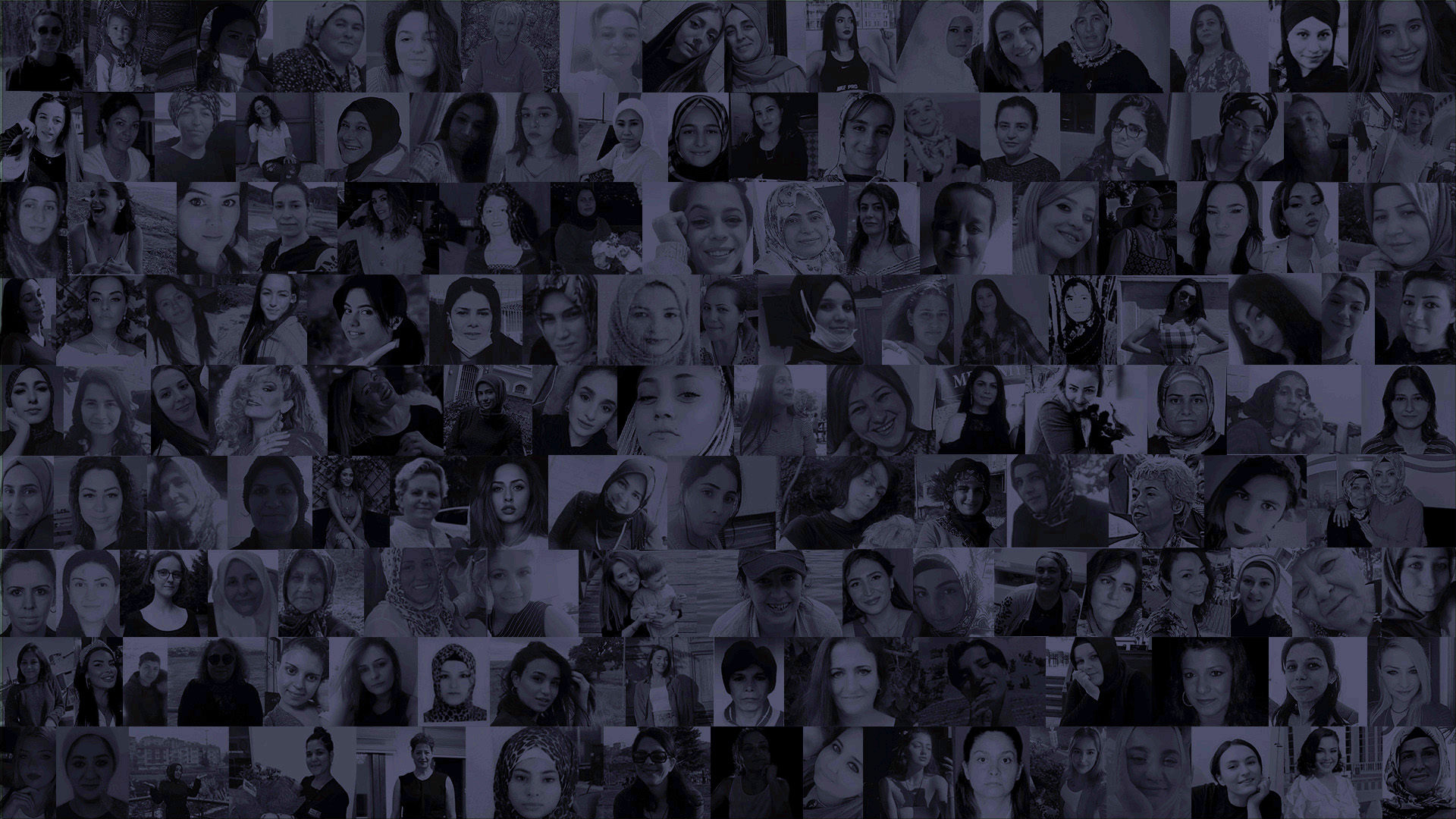
“As women rebel, the pressure increases, and as the pressure increases, another person joins the struggle. We are organizing openly because we are being killed openly.” -Ece Yılmaz
All of this research made me re-evaluate my outlook on art and what it means to put work out into the world. I took my time and came to the following conclusion. I’m a firm believer that as people who are dedicating our lives to the arts, it is our duty to do good and do it with intention. Every act of creation is a political act, why not make something good and/or useful? Even if it is for selfish reasons, putting work out in the world, even on a small scale, affects the world. With the way the world is right now, making art for a living is a privilege. This doesn’t mean you should be thinking hard and long about what you create, it just means being aware of the consequences of what you create. Personally, I make art for women, specifically for Turkish women. My intentions aren’t to change the world, it never will be, but the work I do has an effect on my audience, on the very same community that I am a part of, and I can’t ignore that.
Making
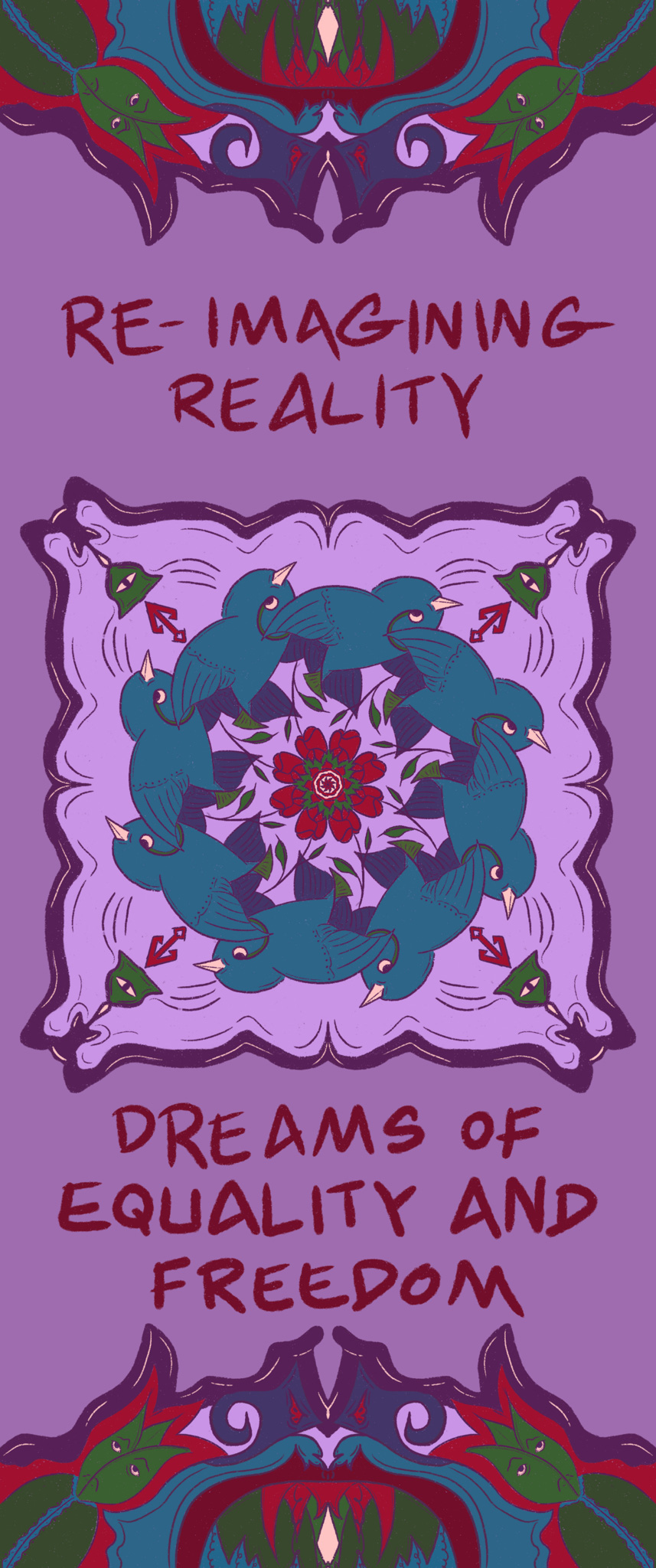
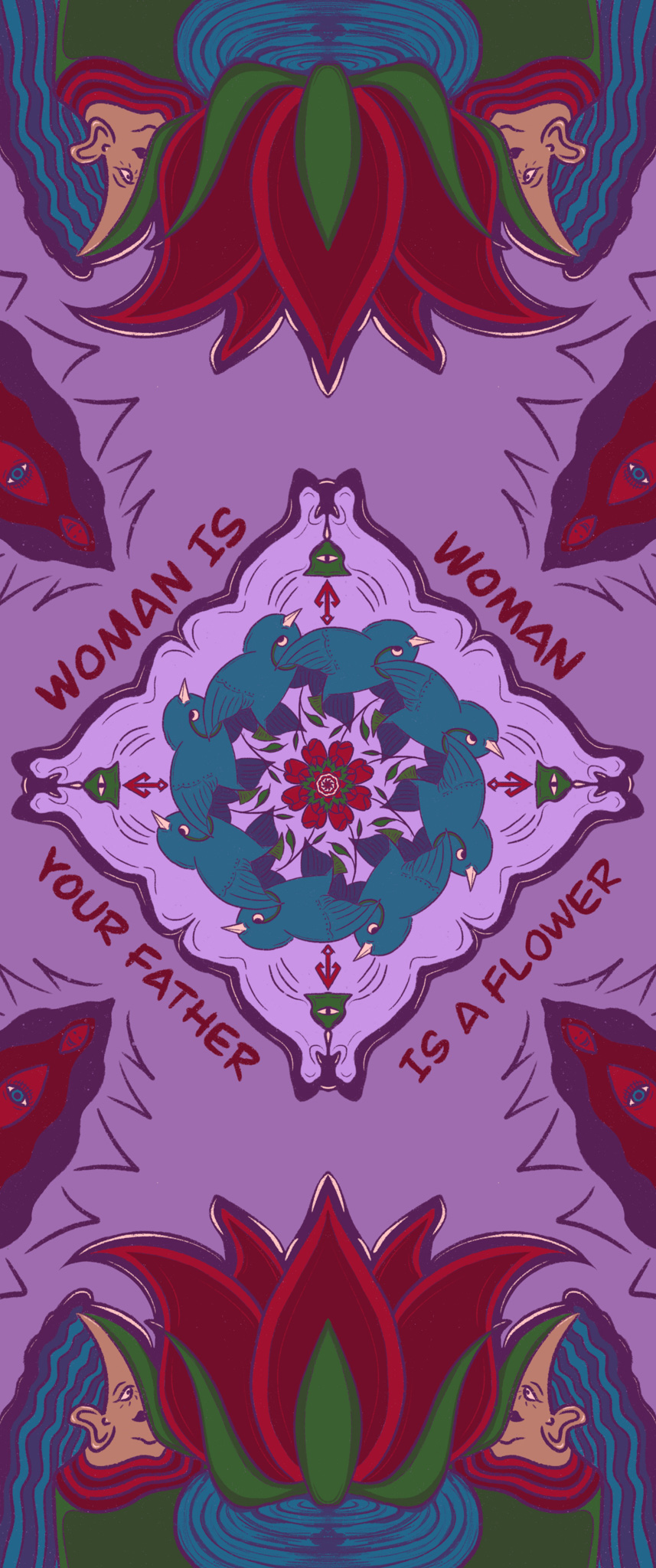
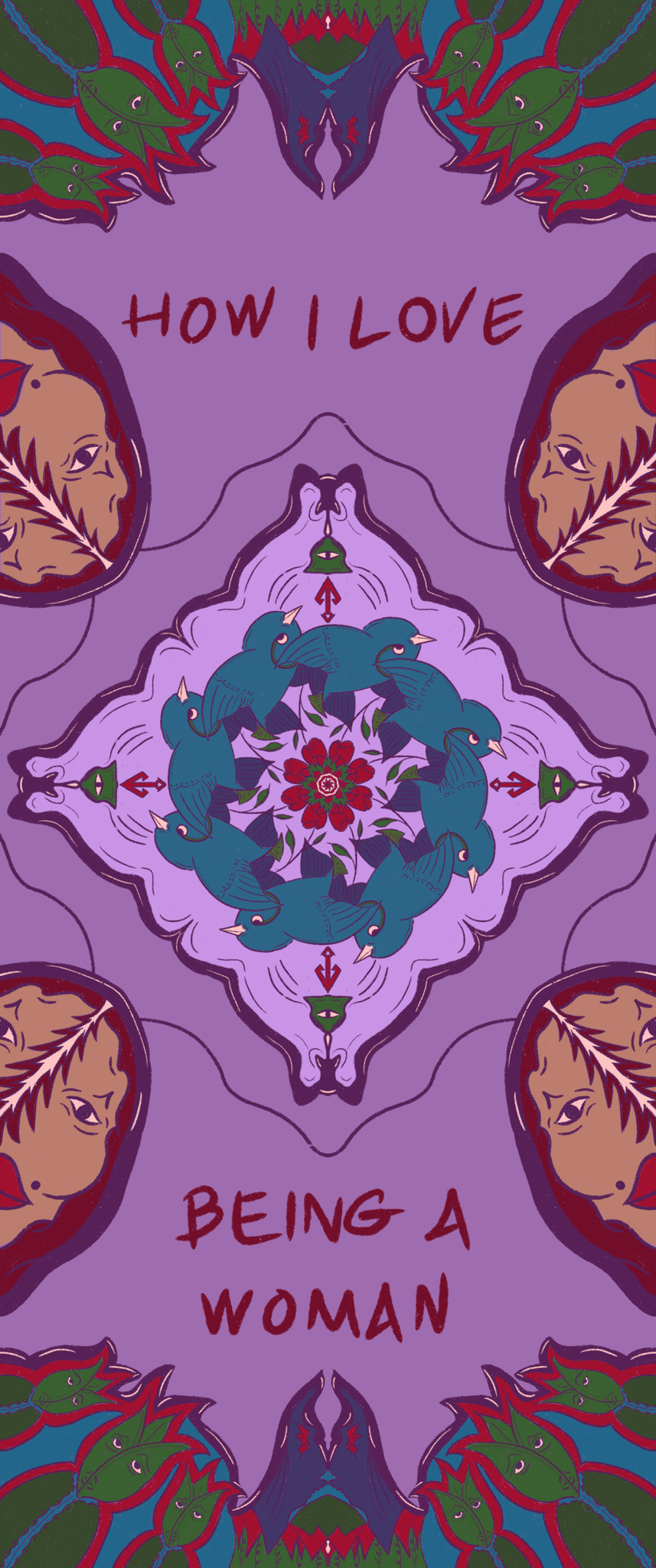
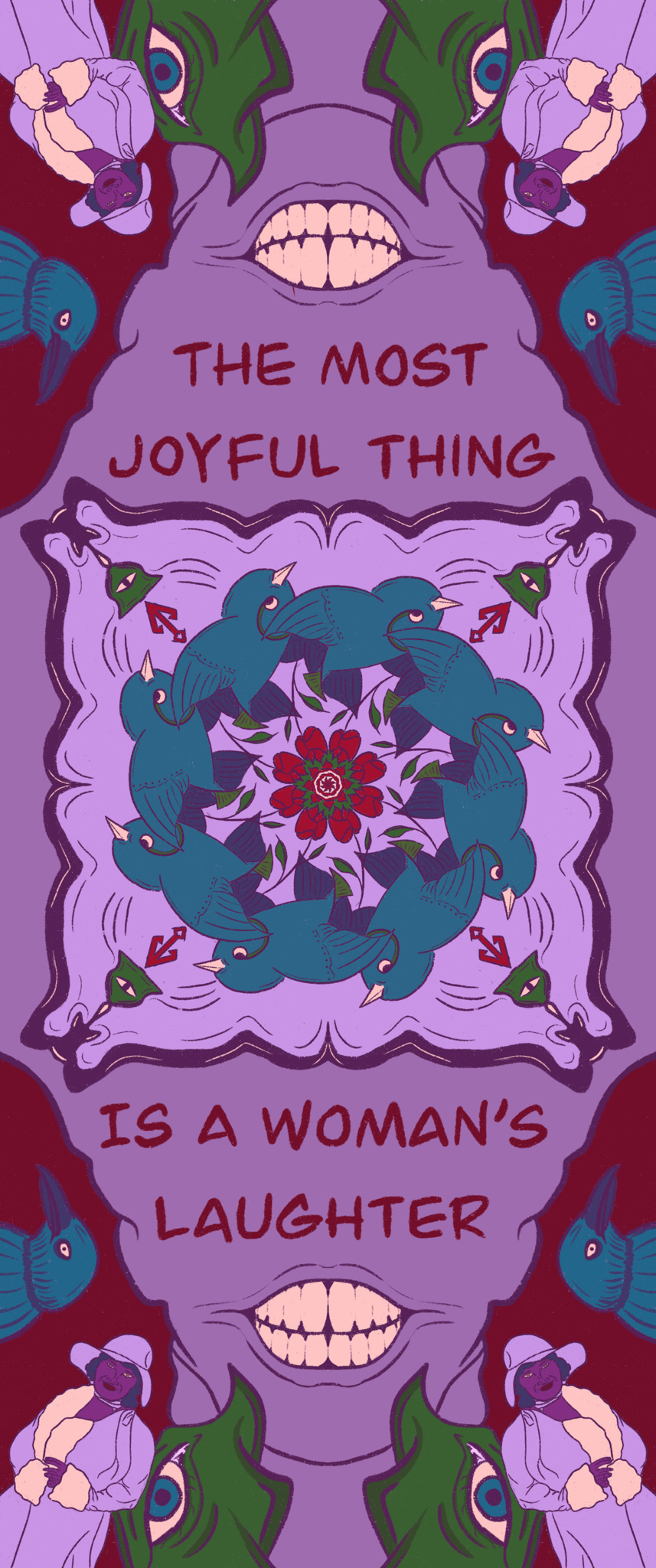
Since my starting point was Anatolian motifs, I wanted to pay homage to the community of women who make hand-woven rugs. I chose a limited color pallet, used texture, and refrained from blending any colors. For the middle repeating pattern, I used different iterations of motifs that already exist to tell a story of womanhood and freedom. The rest of the visuals are allegories with Turkish context.
The phrases in the second and the fourth posters come from Turkish context also. “Woman is [a] woman, your father is a flower” is a known protest slogan as a response to women being called delicate flowers in a very condescending way. The fourth one is a retort to what a former deputy prime minister (2014) said in relation to sexual assault and femicide numbers going up to put the blame on the women, “women shouldn’t laugh out loud in public.”
Anger. Realization of privilege. Utopia. Hope. Change. Sisterhood. Solidarity.
The posters, cut in half, tell a story and take you through a journey. The separation of the mirrored images with different text tells the audience that they belong together, no matter how far. There are many easter eggs for the eyes that see.
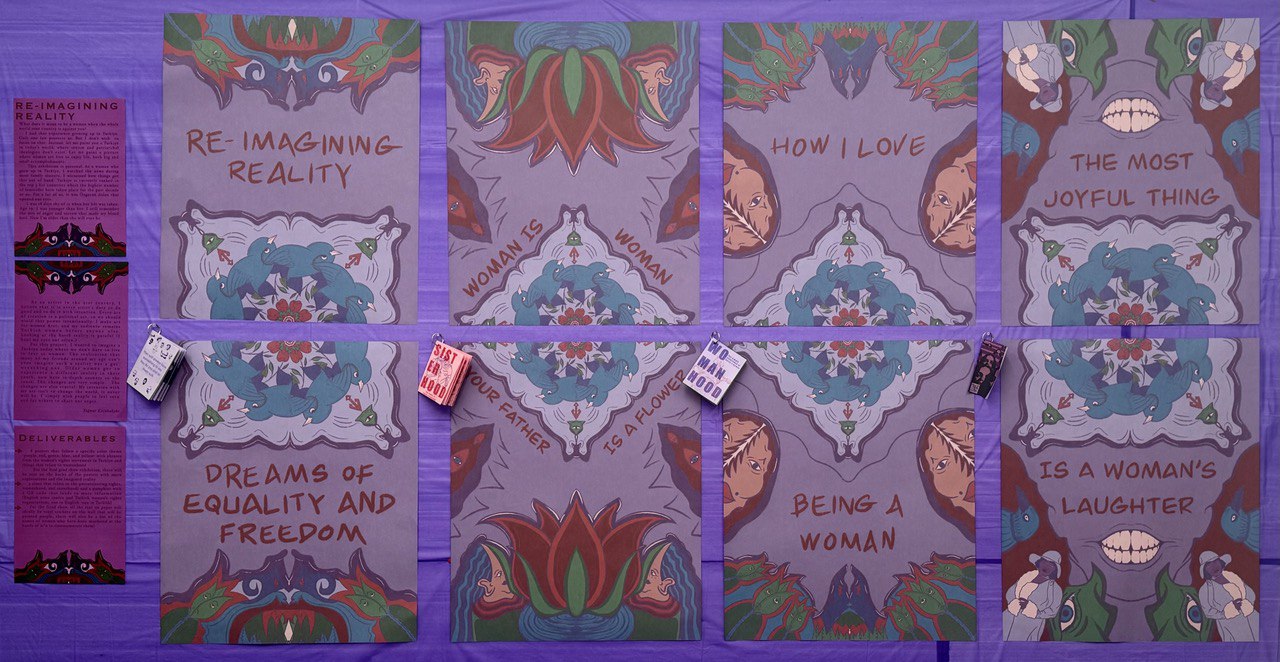
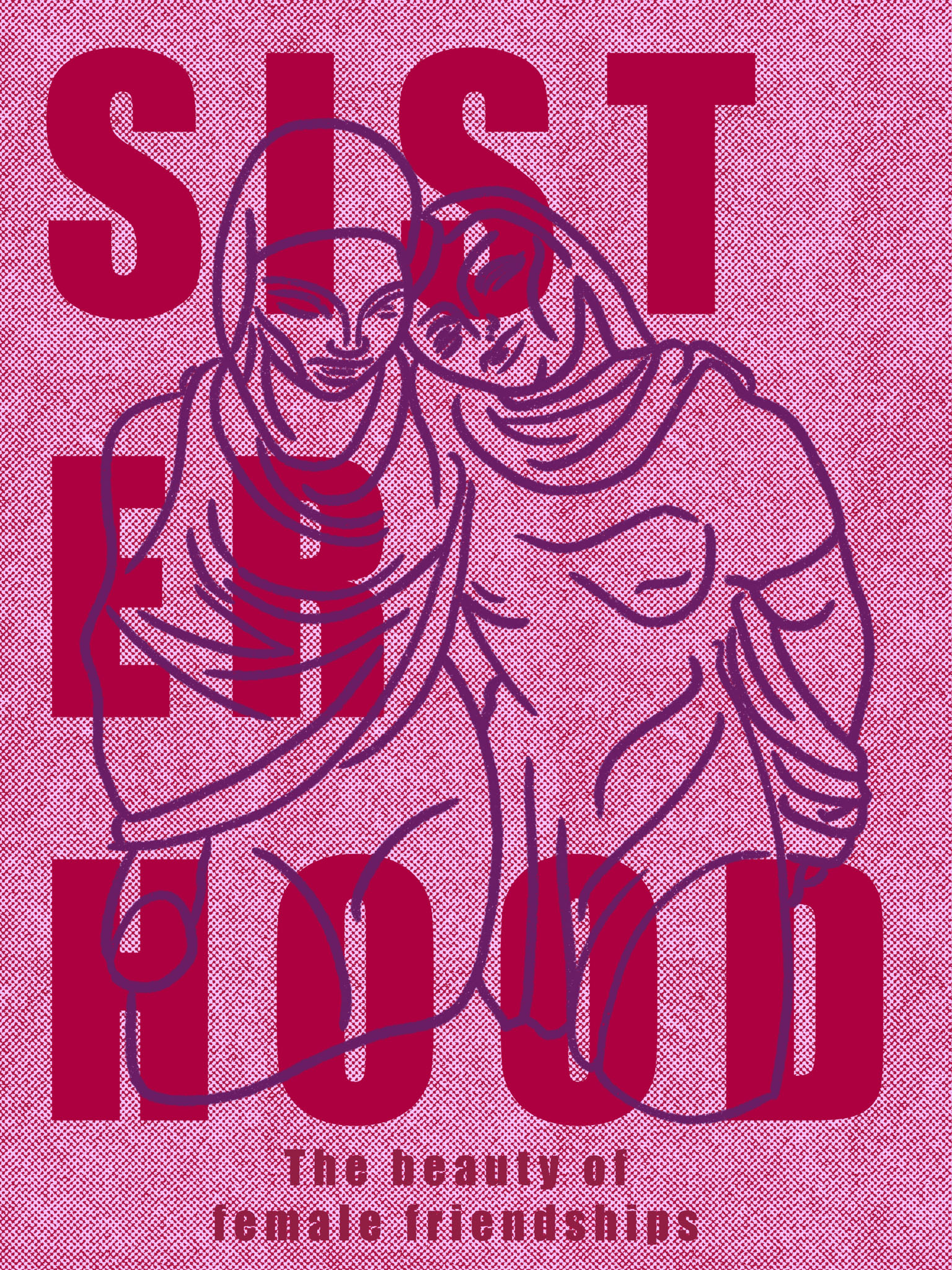
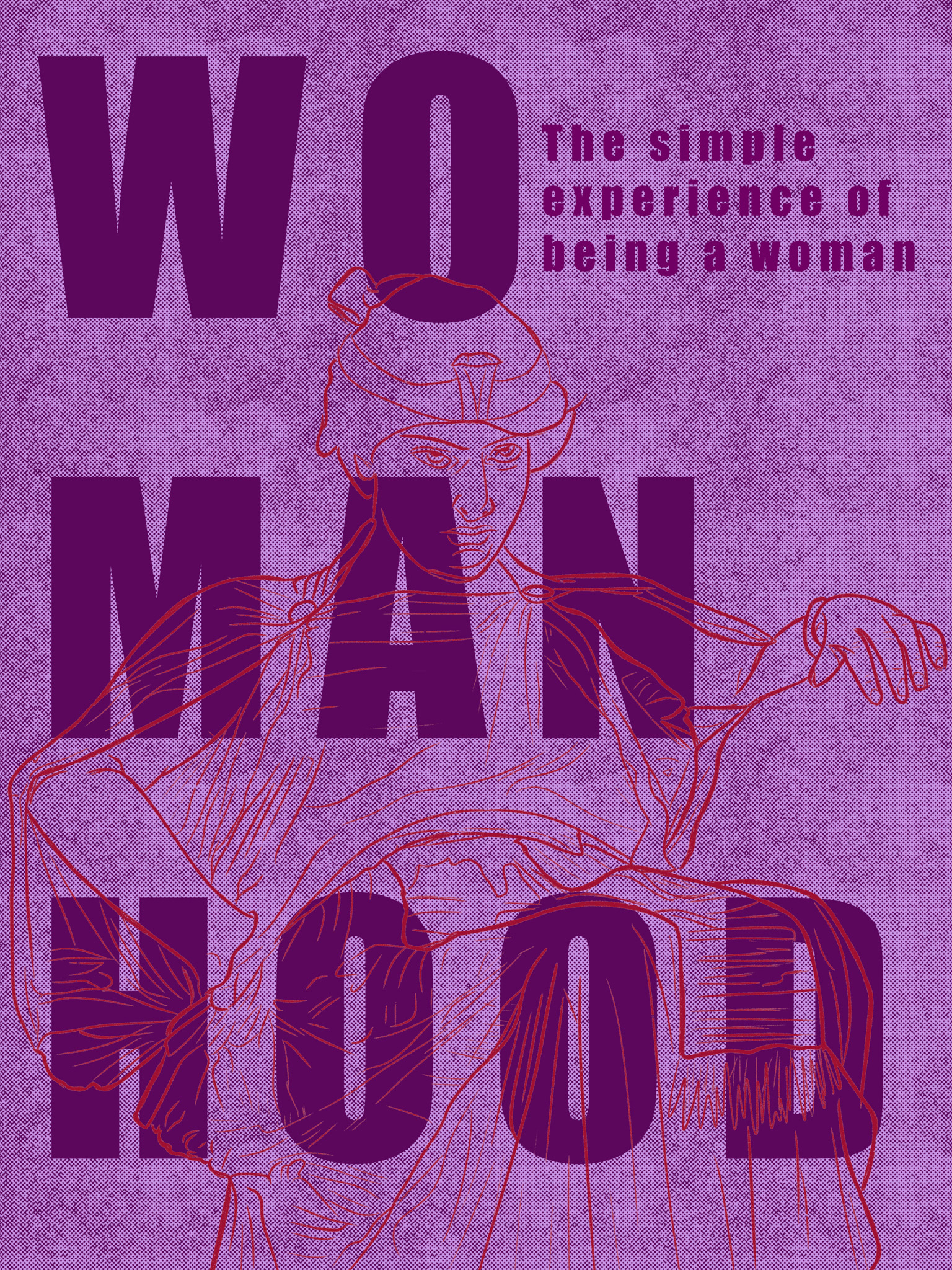
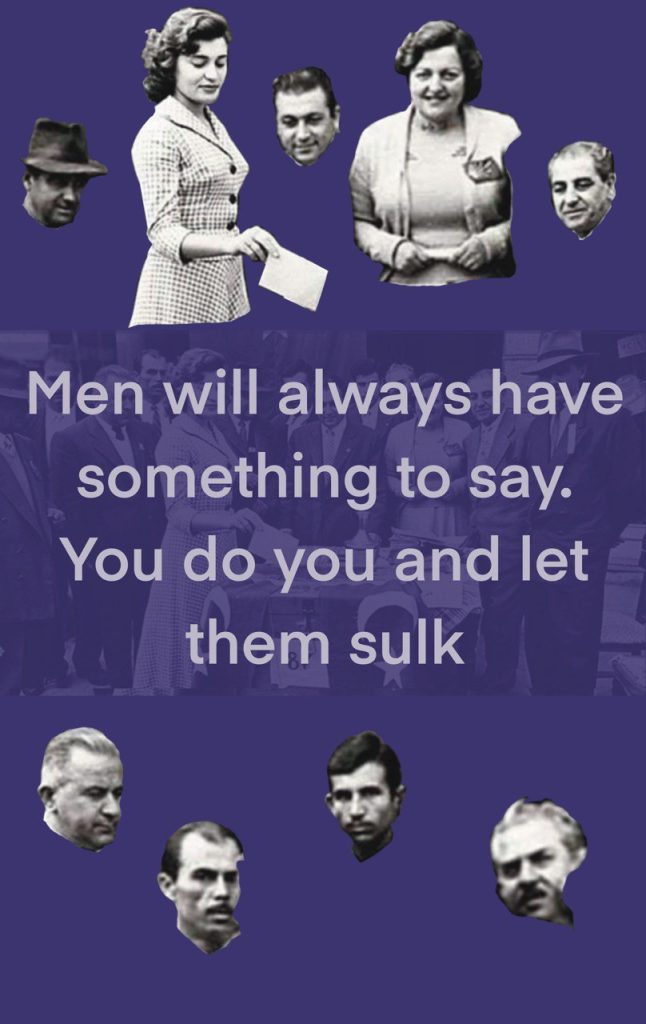
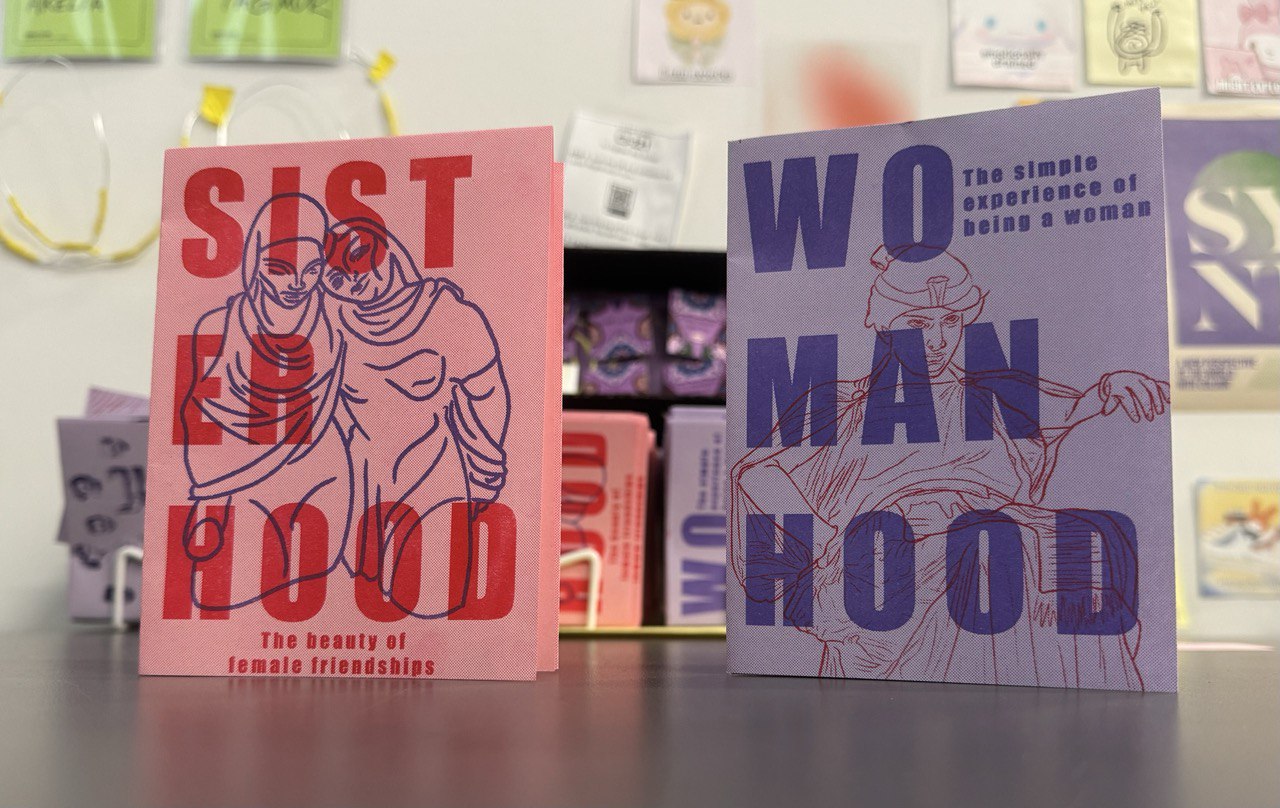
The three risograph zines hanging with the posters not only help with telling a narrative but they also helped me in refocusing on hope as I was working with a heavy subject.
